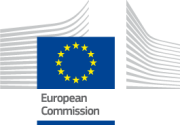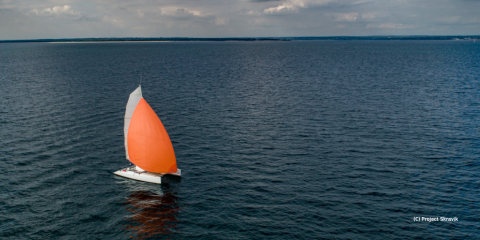
The session is developed as part of the ongoing efforts to prompt the energy transition of the EU blue economy. It will give regional and local actors a platform to share best practices (not least on Smart Specialisation), exchange views, identify barriers and ways forward to drive the decarbonisation of the blue economy towards climate-neutrality by 2050. This includes contribution to a roadmap on the transition of the sector and participation in the new Energy Transition Partnership.
- Territorial | Maritime (oceans, coasts, islands) | Local and regional | EU/ European | Energy | Climate and environment | Industry, entrepreneurship and SMEs (enterprise/ startup/ business) | Circular economy | Investment and Finances | Research and Innovation
- Code: 11WS23181
Practical information
- When
-
Wed 11/10/2023, 14:30 - 15:30 CET
- Type of partnership
- NONE
- Format
- Workshop
- Theme
-
Local energy shift for security and sustainability
- Languages
- English, Spanish, Portuguese
- Website
-
https://oceans-and-fisheries.ec.europa.eu/index_en
- Social media
-
@EU_MARE
@ourocean_eu
EU Maritime & Fish

Partner

Document
Reporting
Session summary
DG MARE’s Workshop at EU Regions Week 2023 focused on the role of coastal regions and cities in the energy transition of the EU blue economy sectors. It gathered with more than 60 participants from across Europe and beyond. The workshop was structured around a panel discussion and a more interactive session between speakers and the audience.
The speakers, who represented emblematic European regions and networks, shared examples of innovative projects promoting the energy transition in their territories. They zoomed in on opportunities in the context of established initiatives that can promote stakeholder synergies towards the decarbonisation of ports and maritime activities, knowledge sharing, new technologies and sectors (e.g., offshore renewable energy) and public-private partnerships.
The speakers also exchanged views on the main challenges related to a lack of adequate resources supporting the energy transition and high investment costs in the development/deployment of new technologies, complex regulatory frameworks, unwillingness for radical change in the mindset of economic operators and need for more integration between cities and ports/blue economy activities.
Complementing the panel, the interactive session allowed the audience to share their thoughts about the main challenges and opportunities for a carbon-neutral EU blue economy by 2050. The main ideas that emerged from the group discussions are linked to the importance of cross-sector cooperation and of breaking silos, knowledge sharing, development of new skills, simplification of regulatory frameworks, funding and investment, as well as a radical change of mentality of blue economy operators.
The workshop provided useful insights that will feed into a roadmap on the energy transition of the EU blue economy by 2050, as well as gathered stakeholder interest in developing an innovation-driven approach to the decarbonisation of the sector under the recently established Smart Specialisation Platform for a Sustainable Blue Economy.
Quotes
-
If we want the energy transition to be successful, we need to ensure its inclusiveness. It is essential that we harness the role of regions and cities in the development of a circular and energy-efficient blue economy that leaves nobody behind.
The challenges related to the decarbonisation of maritime activities are not only sector-specific but also horizontal and cross-cutting spanning from new skills, simplification, technology development and investment.
Public-private partnerships are essential for addressing the complex challenges we face, as no single organisation can drive the level of change needed. This is especially true for the blue economy and its transition towards carbon neutrality by 2050.
Additional links
https://eur-lex.europa.eu/legal-content/EN/TXT/?uri=CELEX:52023DC0100
https://blue-economy-observatory.ec.europa.eu/energy-transition-partnership_en



